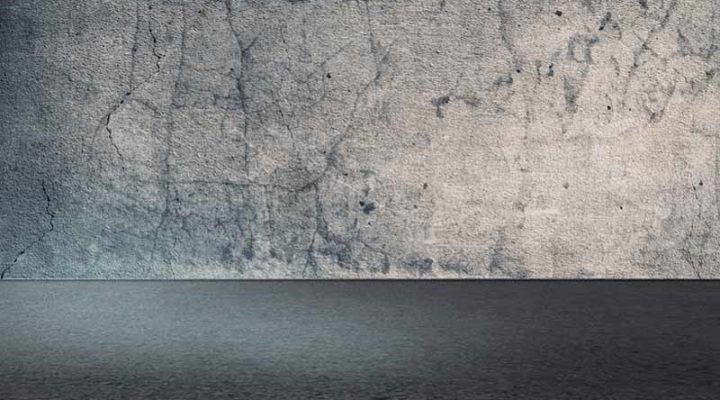
Concrete is one of the more popular materials used in flooring systems for residential, commercial, and industrial construction projects. There are, of course, several factors that influence one’s decision to opt for concrete flooring. The decision will ultimately boil down to personal preference to use concrete flooring or to look for other flooring solutions.
Just like with any product, concrete has its own sets of advantages and disadvantages. Before you plan your construction project, be it a complete overhaul or remodeling activity, here are things that you need to remember about concrete flooring.
Pros
Concrete is a material most often used in pathways, driveways, and garages. It is also the preferred flooring system in industrial settings, including factories and warehouses. Its popularity in both commercial and residential flooring applications may be attributed to the features listed below:
- Excellent Durability
Concrete is extremely durable that it can withstand the weight of cars, trucks, and stacked boxes, appliances, and heavy machinery. Its durability is the reason why commercial buildings opt for concrete flooring in their facilities. Although concrete may still suffer from scratches and the occasional chipping, these issues can be remedied easily and it last many years without major functional problems.
- Low Maintenance
Depending on the volume of foot traffic in a facility or property, concrete flooring should be sealed or waxed to deliver up to nine months of protection. If you opt for raw concrete flooring for your home, office, or place of business, simple mopping using neutral or mild cleaning solutions is more than enough. To remove stubborn stains, you can use a utility pad instead.
- Environmentally Friendly
Most residential properties are built upon a concrete subflooring. Typical flooring options range from hardwood, vinyl, or tiles that are laid on top of the concrete for an aesthetic finish.
- Excellent Versatility
If you are in the process of remodeling or renovating your home, flooring installation upon concrete flooring is fast and straightforward. If you have smooth concrete flooring, even, and free of holes, a new flooring material can be placed right on top of the concrete. You may need to install an interim flooring material to ensure an even surface and solid installation results, too.
- Long-lasting Flooring System
Concrete flooring that is installed by professionals can last for many years, even decades, in some cases. If you implement proper maintenance and cleaning of your concrete floors, as well as appropriate sealing, you can enjoy smooth concrete floors for many decades without the need for repairs.
- Wide Variety of Design and Style Options
Concrete flooring doesn’t have to be dull and grey. Companies have introduced technologies that allow them to produce concrete flooring in a wide range of colors, textures, and effects. During installation, the color may also be integrated to the mix before they are poured over a surface. You may also place color and design through acid staining with the use of the right type of dye or staining product. You may also order to have concrete flooring painted with waterproof latex for vibrant and long-lasting results.
Concrete for flooring installation also comes in a wide array of textures. While some may opt for the traditional smooth texture for their surface, you may also choose a textured surface either for aesthetics or functional reasons. You may also stamp or mold patterns into the surface while it is drying. Lastly, concrete flooring may also be polished or etched for a tile-like effect.
Cons
Concrete flooring is not for everybody, especially for homeowners who want soft aesthetics for their indoor living spaces. Here are some of the drawbacks of installing concrete flooring systems.
- Its Strength is its Weakness
The durable nature of concrete flooring is also considered a disadvantage in some cases. Objects that drop on concrete floors will end up shattered or permanently damaged. If you fall or drop on a concrete flooring surface, your chances of suffering from serious injuries are more significant. Due to these reasons, concrete flooring is not recommended for spaces like the kitchen and dining room. When you drop expensive glassware or cooking ware on concrete, chances are you will end up losing these items permanently.
It’s also not a recommended flooring system in houses for the elderly, or those with babies or toddlers since falls or accidents among these groups of people can result in severe injuries.
- Poor Insulation
Concrete is not a popular choice if you want a flooring system with excellent insulating properties. To remedy this situation, you can install an underfloor heating system or radiant heating to make it comfortable to walk on whatever the weather or indoor air temperature may be. Check here for more: https://www.concretersbrisbane.com
- Excellent Moisture Retention
It is imperative that concrete flooring sealed properly at the top and bottom portion. Installing concrete on bare soil is highly likely to absorb moisture from the ground. In places where humidity is commonplace, moisture can condense and encourage the growth of moss, mold, and mildew.
Consequently, extreme temperature drops may result in moisture freezing, which then expands, resulting in unsightly cracks on the surface of concrete floorings. We hope that these facts about concrete flooring guide you accordingly in your decision to install this material on your next construction project.
Leave a Reply